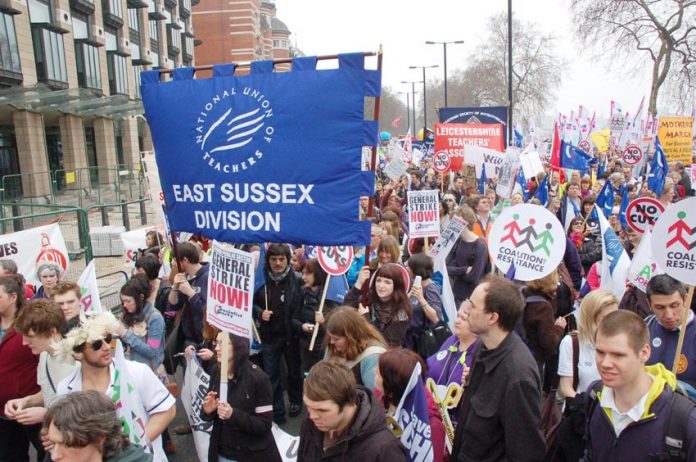GOVERNMENT plans for ‘postcode pay in the public sector’ are unfair and would be bad for NHS patients and schoolchildren in poorer areas, according to polling published by the TUC yesterday.
Almost two-thirds (65 per cent) of respondents in the poll – carried out for the TUC by pollsters Survation – think that the government’s proposals for local or regional pay for public servants should be scrapped.
When asked what they thought of government plans for regional pay, almost two-thirds (61 per cent) thought it would be unfair.
Less than a fifth (19 per cent) want the government to press ahead with its plans and almost two-thirds (65 per cent) want it to drop them.
Opponents of a move away from national pay rates for public sector employees are concerned that the introduction of local pay rates might make it more difficult in future for hospitals and schools in poorer areas to recruit teachers and nurses.
On the impact that lower pay rates for nurses, doctors and clerical staff working in different hospitals might have upon patients, just six per cent said they thought it would be good for them.
Almost two-thirds (65 per cent) said it would be bad for patients, and just 18 per cent said they didn’t think it would make much difference to people in hospital.
When survey respondents were told that the government’s plans would mean individual schools in parts of the UK could leave national pay agreements and cut teachers’ pay, more than half (56 per cent) said the move would be bad for pupils.
Only six per cent said the plans would be good for schoolchildren, while almost a quarter (24 per cent) thought there would be no impact.
Commenting on the findings, TUC General Secretary Brendan Barber said: ‘Apart from the obvious unfairness of paying a teacher in Gateshead less than one teaching in Gloucester, wildly varying pay rates will make it much harder for schools in poorer areas of the country to attract and retain good quality staff.
‘Similarly, if individual hospitals are going to be told that in future they are going to have to set their own rates of pay, the time and complexity of the resulting wage negotiations, and subsequent problems with recruitment as staff migrate to parts of the NHS able to pay higher salaries, could have a damaging impact on patient care.’
